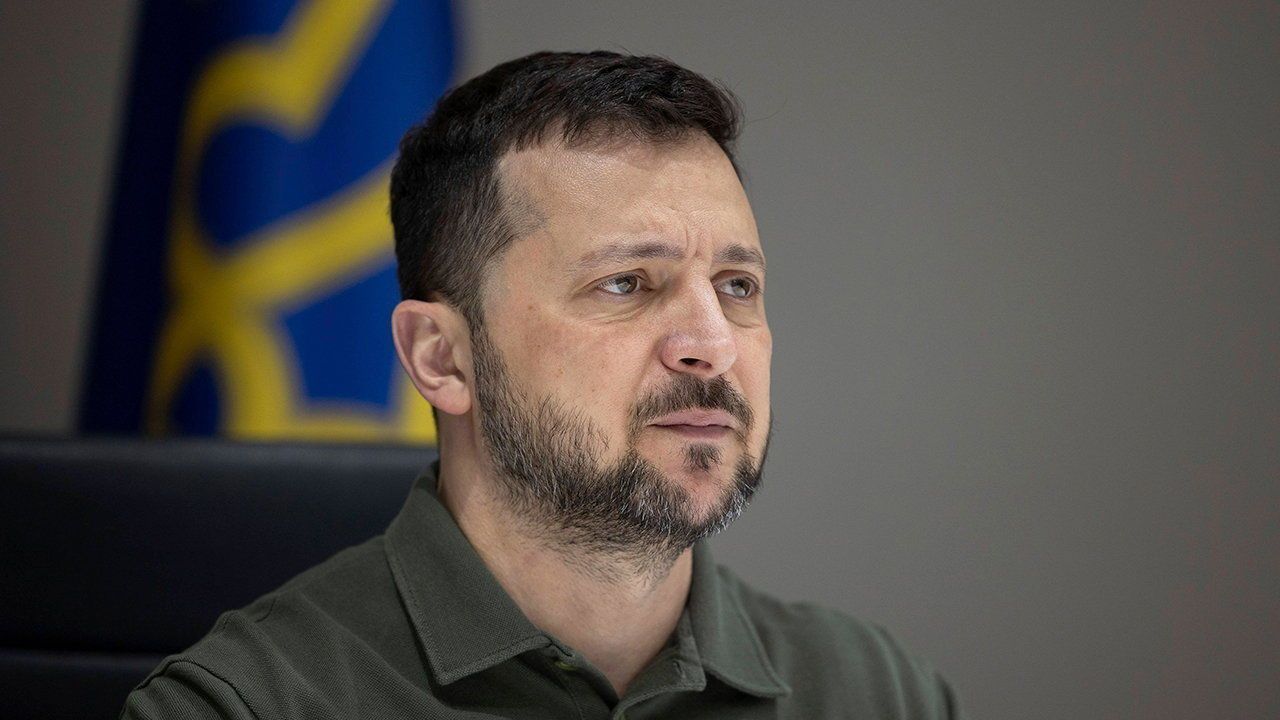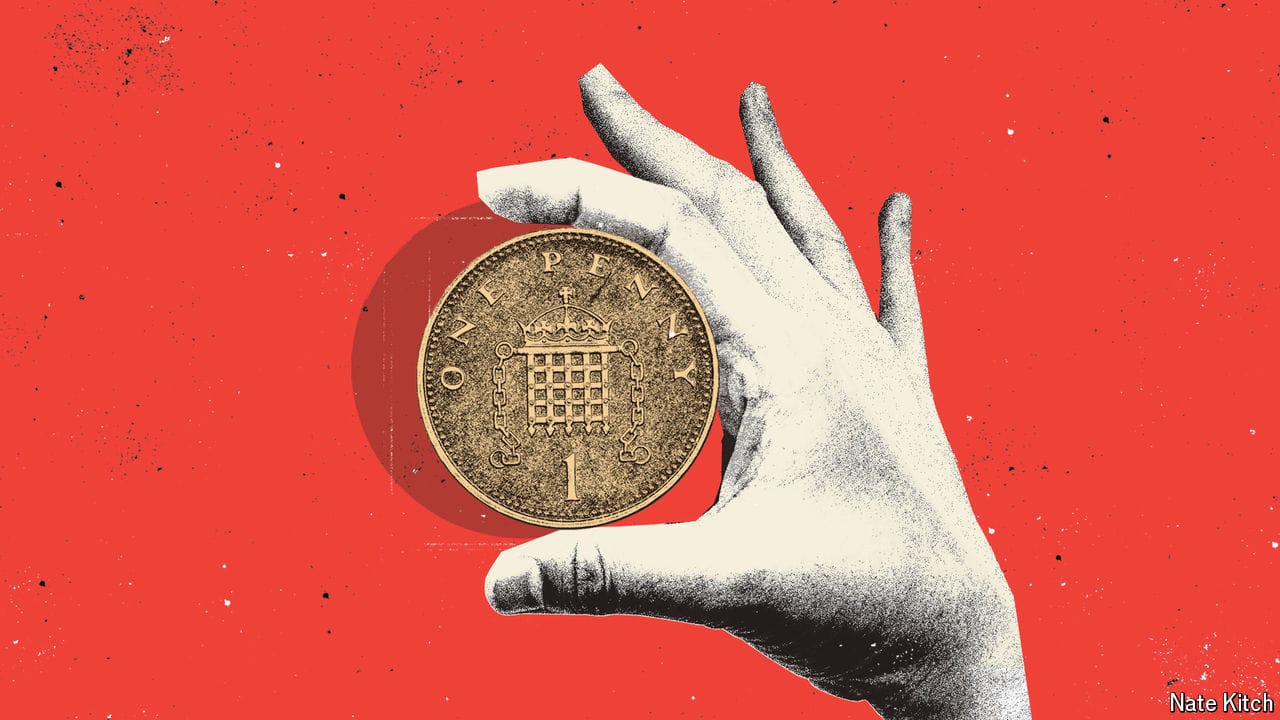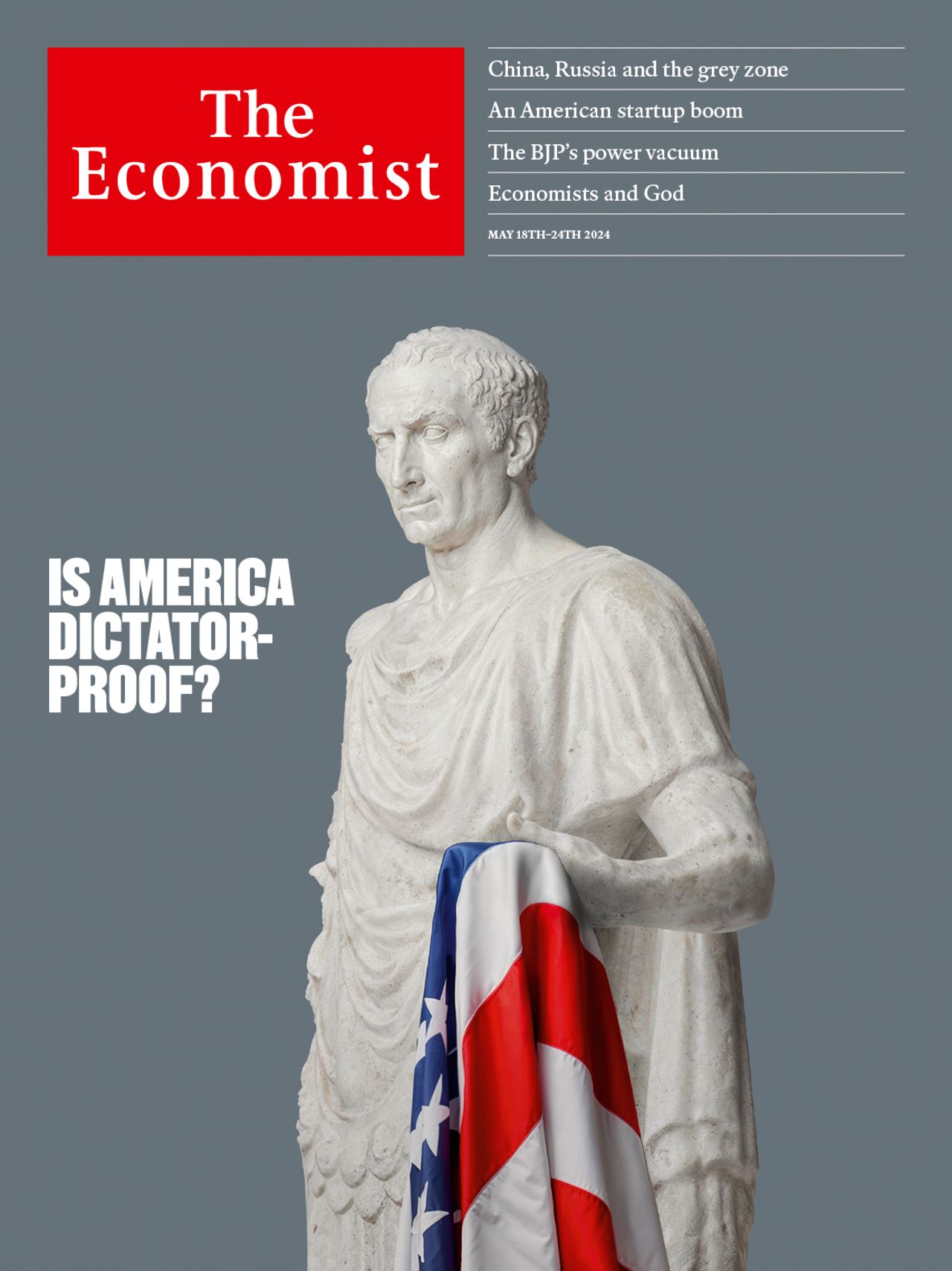Volodymyr Zelensky’s presidential term expires on May 20th
What does that mean for his country?

ABRAHAM LINCOLN won a presidential election in civil-war-torn America in 1864, and FDR secured his fourth term in 1944 while American troops were in action across the globe. Winston Churchill, by contrast, avoided the electorate until the war in Europe was over in 1945, at which point he was turfed out. Holding an election when enemies are occupying your territory or raining bombs on it, and when huge numbers of your citizens are away fighting, is tricky. Not holding one is tricky in a different way, opening those in power to the charge of illegitimacy. That is the bind that Ukraine’s president, Volodymyr Zelensky, finds himself in, as his five-year term expires on May 20th. He cannot hold elections now, but he must prepare to hold them eventually.
Explore more
Leaders May 18th 2024
- Is America dictator-proof?
- Canada’s law to help news outlets is harming them instead
- America’s 100% tariffs on Chinese EVs: bad policy, worse leadership
- Xi Jinping is subtler than Vladimir Putin—yet equally disruptive
- Big tech’s capex splurge may be irrationally exuberant
- Volodymyr Zelensky’s presidential term expires on May 20th
More from Leaders

How to respond to the riots on Britain’s streets
The violence demands robust policing, but it also requires cool heads

Is the big state back in Britain?
The risk is not too much interventionism, but too little audacity

How to make tourism work for locals and visitors alike
Holidays don’t have to be hell
Genomic medicines can cost $3m a dose. How to make them affordable
The treatments are marvels of innovation. Their pricing must be inventive, too
Chinese companies are winning the global south
Their expansion abroad holds important lessons for Western incumbents
The Middle East must step back from the brink
That still means starting with a ceasefire in Gaza
